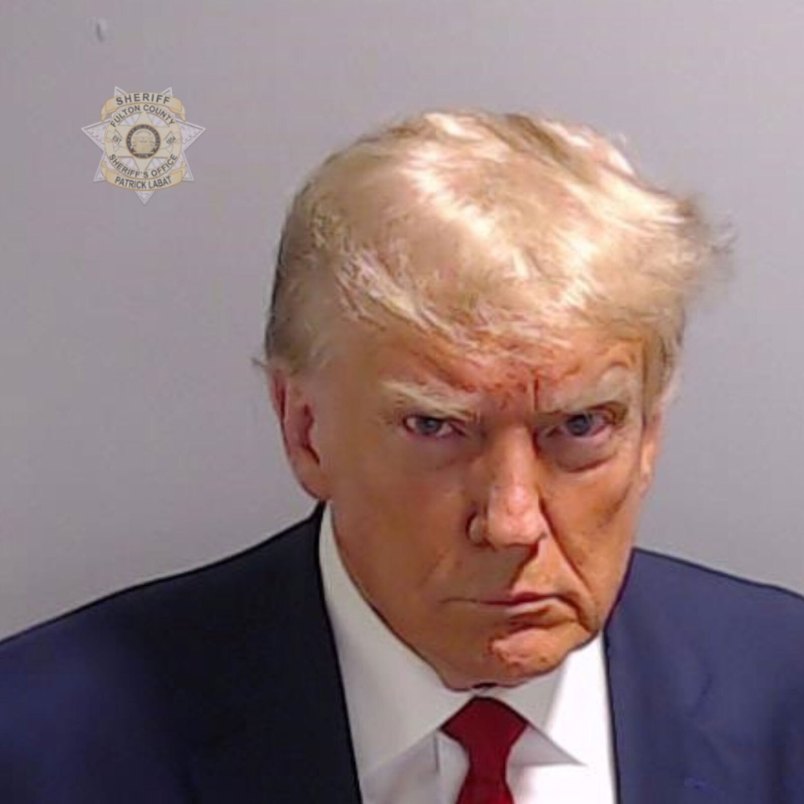How did we get here? How did we not get here? By which I mean how many were the overlapping layers of bad acts, transgressions, crimes, lies that got us here? Looking back over the span of Trump’s presidency and post-presidency it’s not just one stream of actions building to this moment. There are so many, each of which might have gotten us here. It is almost as if — and perhaps this is the best way to look at the matter — Trump was determined to get us here even as we collectively, as Americans, resisted it.
Numerous American presidents have lost power at the ballot box. Every American president, save the eight who died in office, has voluntarily ceded power to his successor. There is no evidence that it so much as occurred to any of them not to do so.
Until Donald Trump.
Nor did it begin in November 2020. Trump lost his very first election — the 2016 Iowa caucus — to “Lyin’ Ted” Cruz. He promptly declared it rigged and, we later learned, called the administrator of the election and demanded he cancel the result. It continued through 2016 when he repeatedly refused to say whether he would accept a general election defeat. It continued in 2020 and with more menace since he now held the power of the federal government to make it stick. From the start Trump took away the common agreement that bounds every contest in democratic political life: that the results of free and fair elections are the end of the story. In part this was to put his opponents off balance, keep them wondering just what Trump might do. Winning an election was only part of the battle to beat Trump. He’d decide when it was over. But more importantly it was a simple statement of fact: Trump wouldn’t accept defeat. A legitimate election was one he won. Period.
It’s true that the New York City case against Trump pales in comparison to the gravity of the one over the theft of classified documents and even more to those over his attempted 2020/21 coup. What gets forgotten is that this “paper crime” was directly tied to gaming the 2016 election. While Trump had his assignation with Stormy Daniels in 2006, the hush money pay off happened weeks before the 2016 election, specifically in order to prevent the story from becoming public. He committed financial and tax fraud to win the 2016 election. He tried an inverted version of that gambit with the threat of withholding weaponry from Ukraine in 2019 once the power of the presidency gave him the power to do so. Both of Trump’s two impeachments were over criminal attempts to subvert the 2020 election.
Once he stormed off to his tacky South Florida Elba on January 20th 2021, you can almost imagine Trump thinking: what more do I have to do?
Lawyers speak of “belts and suspenders,” multiple, overlapping, even redundant layers of legal work to ensure a specific outcome. In a legal context it is usually about mitigating risk. Trump’s has a bizarro version of it bent on increasing it. After again facing no consequences, must he not have been thinking, what more do I have to do? How many more crimes will it take to bring me in? Was this idea rattling around his head when he stole reams of highly classified documents owned by the federal government and proceeded to hide them, lie about them and even share them with random visitors? The man simply left nothing to chance to get to this moment. It was like a quest.
Of course, Donald Trump didn’t really want to get arrested, arraigned, indicted, one step closer on the path to incarceration — at least not consciously (a real question, to my mind). But the trajectory I describe here remains true. As we’ve discussed before, Trump’s whole course through the stage of American politics has been a contest over who is bigger: the law and the rules of the American Republic or Donald Trump. In Trump’s world there are the dominators and the dominated. That’s all. That reality comes through in his relationships with everyone around him. It’s his way of organizing and understanding. For me to win you have to lose. Indeed, I only know I’ve won when you lose. The idea of a world of or relationships between relative equals — the basis, however imperfect, of civic democratic life — is alien to him.
If the contest is between Trump and the American Republic — who’s bigger, who calls the shots — it’s never settled. It has to be demonstrated again and again. It’s the same reason he needs to humiliate his lackeys and lickspittles again and again long after they’ve professed and proven their fealty. The only way, certainly the clearest way, to show he’s bigger than the American Republic is to break its rules with impunity.
And thus here we are. The humiliating glowering mugshot wrenched haplessly into a symbol of defiance. The only place we could ever end up, at least if the American Republic were to survive.






